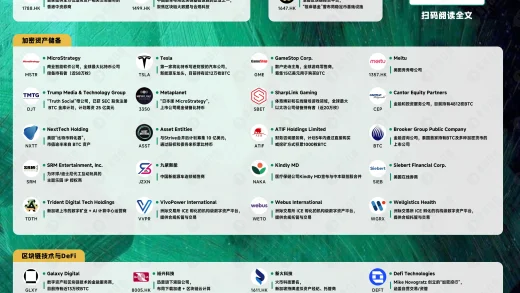1. Industry Risk Analysis
(1) Policy Risk
The Chinese herbal formula granule industry is currently in a stage where policy implementation and adjustment overlap. Potential risks are concentrated in three aspects: Firstly, the expansion of the new national standards puts pressure on local filing standards and production processes for iteration. Some enterprises may need to reinvest in R & D and production line transformation. Secondly, under the dynamic adjustment mechanism of the medical insurance catalog in each province, formula granules may face the pressure of a tightened payment scope or price negotiation. Thirdly, after stricter supervision, some historical formulas may have their usage scope restricted due to insufficient evidence – based medical evidence. Inconsistent policy implementation scales may lead to an increase in compliance costs for cross – regional operations. The upcoming policy evaluation period may accelerate the reshuffle of the industry, and small and medium – sized enterprises risk being forced to withdraw if they cannot meet the new requirements for environmental protection, quality control, etc.
(2) Economic Risk
The Chinese herbal formula granule industry currently faces the situation where on the demand side, the contraction of residents’ health expenditure during the economic downturn affects the market, resulting in a slowdown in market growth. On the supply side, the inertia of capacity expansion leads to a periodic surplus. The prices of upstream Chinese herbal medicine raw materials are severely affected by cyclical fluctuations. Coupled with the sharp increase in fixed costs brought about by the upgrade of production equipment, enterprises’ cash flows are under obvious pressure. The industry is in a stage where policy dividends are fading and technical standards are being iterated. Small and medium – sized enterprises face the risk of being eliminated due to the increase in R & D investment and compliance costs.
(3) Social Risk
The Chinese herbal formula granule industry faces the risk of an inter – generational consumption gap. The younger generation tends to prefer Western medicine or health supplements for their convenience and has a lower recognition of traditional Chinese medicine culture, resulting in a shrinking consumer base. Although the middle – aged and elderly groups recognize the efficacy, it still requires long – term market education for them to accept formula granules as a substitute for traditional decoctions, and it is difficult to form large – scale repeat purchases in the short term. The industry overly relies on policy dividends to promote medical insurance coverage, but the difference in inter – generational health consumption concepts makes the policy conversion rate questionable. The real market demand may be overestimated, and there are risks of inventory and capital chain due to supply – demand mismatch.
(4) Legal Risk
The Chinese herbal formula granule industry faces multiple legal risks: Products must strictly follow the “Drug Administration Law” and the national standards for formula granules. If the production process or quality standards are not met, enterprises may face penalties such as production suspension. Insufficient protection of formula intellectual property rights may easily lead to patent disputes, and enterprises need to guard against the risks of infringement or being infringed. If advertising involves unapproved efficacy claims, it will violate the “Advertising Law”. The production process needs to meet the requirements of GMP certification. Inadequate environmental protection facilities may trigger liability under the “Environmental Protection Law”. When selling products across borders, differences in customs inspections and overseas market access standards may cause compliance obstacles. Enterprises need to establish a full – process legal risk control system.
2. Entrepreneurship Guide
(1) Suggestions on Entrepreneurial Opportunities
The Chinese herbal formula granule industry is in a period driven by both policy dividends and consumption upgrading. Entrepreneurs can focus on three major directions: Firstly, develop characteristic granule products that meet the access standards of the medical insurance catalog in each province, and give priority to the layout of niche fields such as pediatrics and chronic diseases. Secondly, build a linkage model between an intelligent decoction and dispensing system and a health management platform, and provide personalized herbal paste customization services for high – net – worth individuals. Thirdly, use the Internet of Things technology to create a traceability system for Chinese herbal medicines. By jointly building a digital supply chain with planting bases, solve the pain point of unstable raw material quality. The policy clearly requires full coverage of formula granules in medical institutions by 2024. Entrepreneurs can take advantage of the channel sinking of primary medical care to quickly seize the county – level market.
(2) Suggestions on Entrepreneurial Resources
Entrepreneurs in the Chinese herbal formula granule industry should focus on the efficiency of resource integration. They should give priority to obtaining R & D subsidies supported by policies and the qualification to enter industrial parks. They should cooperate with traditional Chinese medicine universities to build joint laboratories for extraction processes to lower the technical threshold. They should lock in direct – supply channels from GAP – certified planting bases of genuine Chinese herbal medicines to ensure the stability of raw materials. They should open up distribution channels in both traditional Chinese medicine hospitals and chain pharmacies and use cross – border e – commerce to expand into the Southeast Asian market. They should focus on allocating funds for the certification of intelligent production lines (GMP), apply for authorization from the classic prescription patent pool simultaneously, introduce the endorsement of provincial traditional Chinese medicine industry funds, establish strategic warehousing cooperation with cold – chain logistics enterprises, and form an advisory team including pharmacopoeia experts to form a closed – loop of “government, industry, academia, research, and application” resources.
(3) Suggestions on Entrepreneurial Teams
Entrepreneurial teams in the Chinese herbal formula granule industry should integrate cross – field talents in traditional Chinese medicine, pharmaceutical engineering, and regulatory certification. They should give priority to recruiting core members with experience in the production and management of Chinese herbal decoction pieces to ensure the connection between formula R & D and granulation processes. The team needs to have regulatory specialists familiar with the “Technical Requirements for Quality Control and Standard Setting of Chinese Herbal Formula Granules”, and at the same time build a marketing team with hospital channel resources. A cooperation mechanism between technical backbones of Chinese herbal decoction piece factories and new – type pharmaceutical equipment engineers should be established. The team’s technical iteration ability should be strengthened through regular process verification and clinical feedback mechanisms.
(4) Suggestions on Entrepreneurial Risks
Entrepreneurs in the Chinese herbal formula granule industry need to focus on compliant production and quality control. They should ensure that raw material procurement meets the pharmacopoeia standards and establish a stable supply chain, and complete GMP certification and product filing in advance. They should strengthen investment in R & D, pay attention to the accumulation of clinical effectiveness data to deal with policy review risks, and at the same time plan the access path to the medical insurance catalog. On the market side, they should establish a flexible pricing mechanism, formulate different strategies for medical institutions and retail channels, and pay attention to doctor education and consumer awareness cultivation. They should build a digital traceability system to deal with the price fluctuations of Chinese herbal medicines, reserve a safety stock buffer of more than 15%, and give priority to signing price – guarantee agreements with local cooperatives. They should strictly monitor the microbial indicators in the production process, and the留样 detection period for each batch should not be less than 12 months to prevent quality traceability risks.




